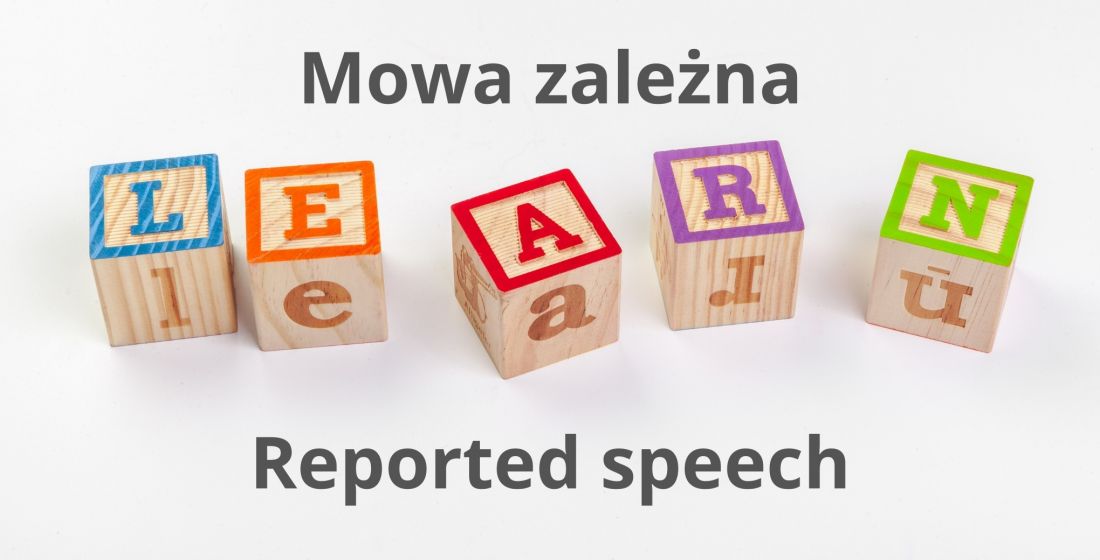
Reported speech to tzw. mowa zależna. To zdawanie komuś relacji z tego co powiedział ktoś inny. Najczęściej stosowana jest w opowiadaniu o czyichś dialogach czy rozmowach. Poznajemy ją po zwrotach „On/ona powiedział, że” (He said that) i im podobnych. Do najpopularniejszych należą ponadto „he told him/her ”(on powiedział jej, jemu), „he asked” (on zapytał) etc.
Mowa zależna (ang. reported speech) to sposób przekazywania czyichś słów, myśli lub pytań bez dosłownego cytatu. Wymaga często przesunięcia czasu, zmiany zaimków oraz określeń czasu i miejsca.
| Bezpośrednia | Po zmianie | Przykład |
|---|---|---|
| Present Simple | Past Simple |
She said, “I work.” → She said she worked. |
| Present Continuous | Past Continuous |
He said, “I’m studying.” → He said he was studying. |
| Past Simple | Past Perfect |
She said, “I went.” → She said she had gone. |
| Will | Would |
He said, “I will go.” → He said he would go. |
Mowa zależna pozwala na przekazywanie cudzych słów z zachowaniem sensu, bez dosłownego cytowania. Wymaga przesunięcia czasów, zmian zaimków i określeń miejsca i czasu, ale dzięki praktyce staje się naturalna i przydatna.

She said (I am hungry)
→ She said (that) she ____ hungry.
He said (I can swim)
→ He said he ____ swim.
They said (We have finished)
→ They said they ____ finished.
Tom said (I will help you)
→ Tom said he ____ help me.
Anna said (I am working now)
→ Anna said she ____ working then.
He said, “I live here.”
→ He said he ___ there.
She asked, “Where do you live?”
→ She asked where I ____.
He asked, “Did they arrive?”
→ He asked if they ____.
He said (I have been waiting for hours)
→ He said he ____ waiting for hours.
They said, “We are going to leave.”
→ They said they ____ to leave.